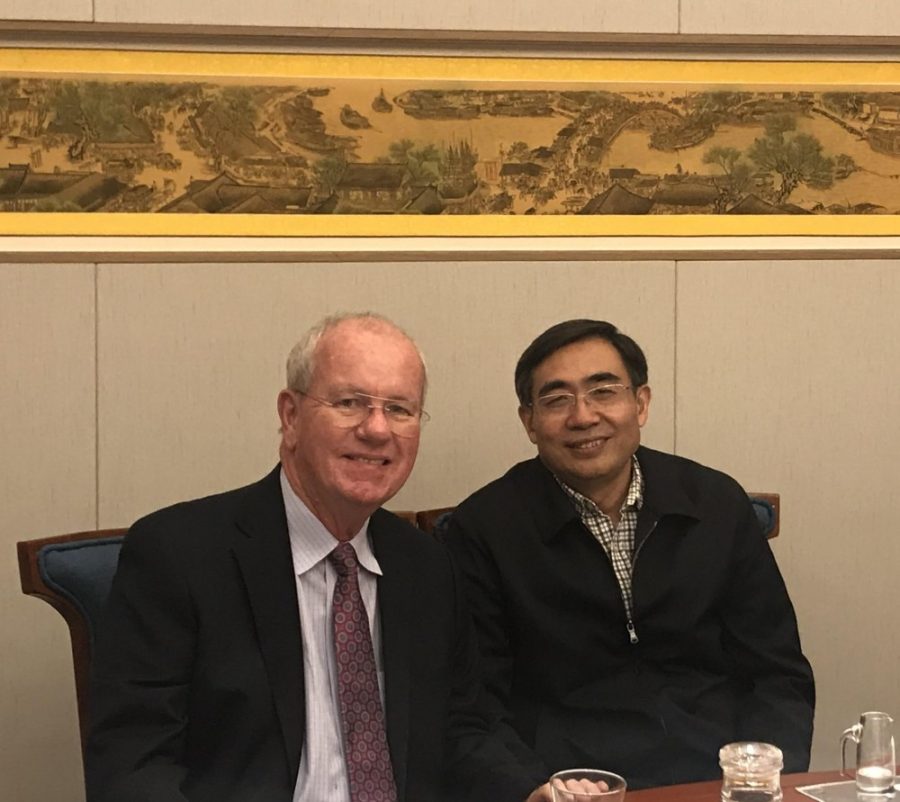At the end of 2018, UA Professor David Galbraith, from the School of Plant Sciences, was appointed as Honorary Dean at Henan University in China. Henan University is located in the city of Kaifeng in Henan Provence, on the central eastern side of China.
Galbraith is the first to hold the position after being appointed in China on Dec. 28. The Daily Wildcat talked to him about this new position and what it means for the University of Arizona.
RELATED: UA student Chris Harper shares his passion for the stage
Daily Wildcat: What does being the Honorary Dean of Henan University entail? What will the next three years look like?
David Galbraith: I’ve basically been allowed to choose what I want to do. I don’t think they have a clear idea of what they want, except that they want to be able to create links with universities such as ours. But the actual specifics of it are up to me to try and define.
DW: What will those links with our university look like?
DG: The Chinese are very interested in sending over their students to work here in research labs, and these students would all be paid by the Chinese. It’d essentially be free hands in the labs. They’re also interested in us sending faculty over to do short courses and in developing joint degree programs. In order to do all of this, you have to have bodies in the faculty and you have to follow the rules and regulations that govern these types of activities over here. You know, there has to be something of benefit to both sides. At the moment it’s mostly [that] it’s trying to get them to define what they want and then talk to us, and we define what we would like. And then see how it can work.
DW: What are your goals with this new position?
DG: The way they learn science in China is a little restricted by the cultural background of the Chinese. When I have students who work in my lab, I make sure they know that I don’t know anything – or at least I don’t know everything. They are becoming the expert in their little part of the field. I don’t want them to produce results that will make me happy. They just have to produce results that are accurately done, whether or not they fit what we think is going on. So that, apparently, is the sticking point. [In China], the professor is often viewed as God. And the minions underneath are there to serve the professor, but I view it quite differently.
The Chinese government has begun implementing educational programs to fund universities, according to China Higher Ed. Two such programs are the 111 Plan and the Thousand Talents Program, which provides funding to improve Chinese science. One aspect of these initiatives is to seek out international experts to be a part of education for Chinese universities.
RELATED: Weekly farmers’ market brings more than smells to campus
DW: How did your relationship with Henan University begin?
DG: The president of the university, named Song Chunpeng, was a former senior research associate in my lab. That was 20 years ago. Eventually he became president of the university, and he wants to bring Henan University up from its position of being a regional university to being a top-ranked university. In the first case, I was contacted and asked if I wanted to be part of their initiative directed toward the 111 Plan and the Thousand Talents program. I was approached by them to become one of what they call “International Masters,” and I agreed to do that. I go over two, three times a year for a short period of time, live on the campus, go and visit labs, give lectures. That went on for about 18 months. And then they approached me and asked if I’d like to be the Honorary Dean, and so I said, “Sure, that sounds interesting.”
DW: How do you feel about being appointed as the first Honorary Dean for Henan University?
DG: Well, I feel very honored. It’s up to me to make a success of it from that point of view, and hopefully we’ll build something that’s permanent and useful for the University of Arizona.
Follow Breagh Watson on Twitter









